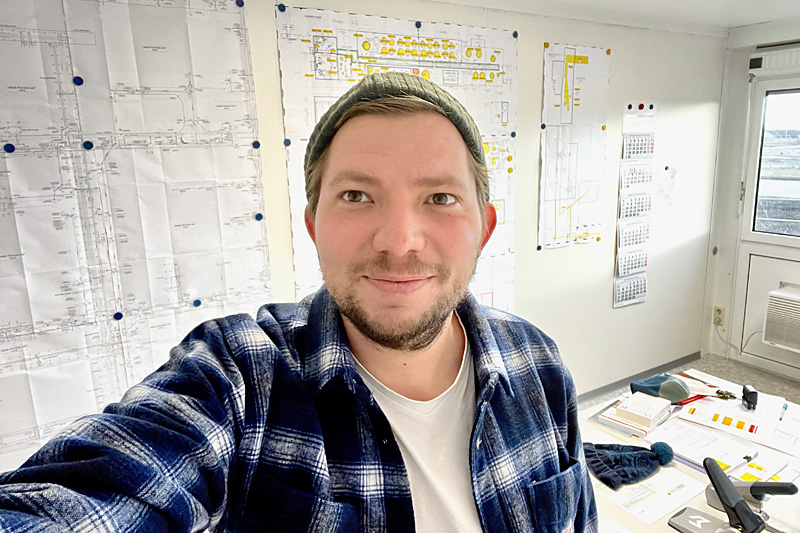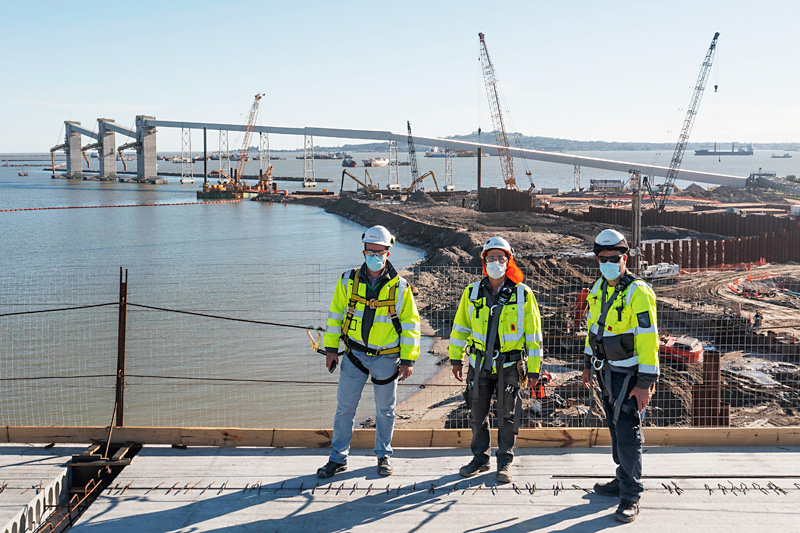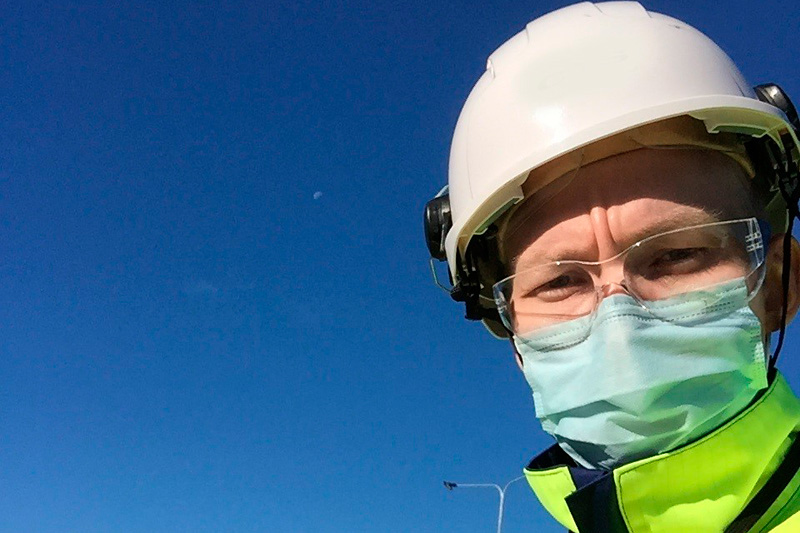International Fimpec, part 3: Project controller Magnus Krause, Germany

In this article series, we get to know Fimpec’s international experts. In this third part, German project controller Magnus Krause talks about his work as a self-employed person and explains what is important to him in his work.
Magnus Krause has lived in Leipzig, Germany, for ten years. There, he studied economics and information technology. After graduation, Magnus worked as a project manager for Porsche, a well-known German automotive company, before establishing his own company and becoming a self-employed person. Since then, he has worked as a project manager on a number of projects.
Fimpec teamed up with Magnus when construction site manager Michael Lisso asked him to join UPM’s biorefinery project in Leuna in early 2020. Fimpec is responsible for the project’s construction work, planning guidance and tendering of piecework. Magnus works as a project controller in the project.
Flexibility as an asset
Magnus decided to start his own business because working for Porsche began to feel slow and rigid after a few years. He is a person who always wants to learn something new and needs a dynamic work environment. Thus, Magnus decided to become self-employed. In particular, the balance between work and leisure inspired Magnus to start his own business. For those who have just completed their studies, the balance between work and leisure is different from that of those who have been working longer. Magnus did not want to lose the flexibility of student life, and working from nine to five did not appeal to him. Hence, starting his own business felt like the logical step to take.
“I am fine with taking care of regular tasks, such as meetings, on weekdays and working in peace in the evenings or at weekends. Sometimes, I work on Sunday and sleep in on Monday. As a self-employed person, my schedule is more flexible and freer than the schedule of a ‘normal’ employee,” Magnus says, describing the good aspects of his job.
Magnus also believes that this arrangement works well for a young company like Fimpec Deutschland. In the beginning, a company can hire self-employed workers and later, when the company grows, it can expand its workforce by hiring specialists under a so-called normal employment relationship.
Organisation and communication as key duties
In the current project, Magnus has many responsibilities. He is usually the first person that contractors contact if they have any questions or agreements to be negotiated. Magnus assists with inquiries related to plans, drawings and schedules. Magnus is also responsible for construction site arrangements. The project site consists of two large areas with many facilities and pieces of equipment, including fencing, bathrooms, cranes, means of transporting heavy goods, and a storage area.
“My responsibilities range from smaller assisting tasks to more significant problem solving. My key duties include organisation and finding solutions and information,” Magnus says.
Because of the variety of his work, Magnus strives to keep his tasks in good order and prioritise them with a good overview of the project. Magnus uses checklists and reminders to organise his work. “Because my work is so diverse and my phone rings about 50 times a day, lists and reminders help me navigate my workload. Maybe this is a typical German way of working: we are always organised and on time,” Magnus laughs.
However, organising one’s own tasks also contributes to the overall success of the project. Accuracy and communication play a major role, as well. Magnus always tries to respond quickly to inquiries, because time is also important for the progress of the project. “With inquiries and questions, it is important that things are clearly expressed. Clear communication saves a lot of time,” he says.
Magnus is hungry to learn something new and improve his skills. He is always seeking new opportunities to learn something new and interesting. In his current role, however, Magnus has so many responsibilities that learning occurs naturally through everyday work.
Impressive modernity and team spirit
In addition to flexible management of one’s work, openness and open-mindedness are, according to Magnus, important assets in large construction projects. Magnus believes that openness and open-mindedness should be basic requirements, because it is impossible to predict what will happen on the construction site. “Some people tend to say ‘no’ to everything at first. For Fimpec, an open-minded attitude is a necessity. For example, in our Fimpec team, you can see that everyone contributes to problem solving.”
In addition to the open working environment, Magnus enjoys working for a Finnish company because the operations are modern. “I do not think Fimpec could be any more modern,” he laughs. He has been impressed by the Fimpec team’s English skills, extensive computer skills, and use of new technologies and practices. For example, one of Magnus’ tasks is to take drone photos of the site every week. “We review the photos in our weekly meetings. The photos help us monitor the progress of the construction site in concrete terms. This practice has been praised by many contractors and other operators,” Magnus explains.
In spite of the coronavirus pandemic, Fimpec’s team in Germany has succeeded in both leading the project and creating a good team spirit. Although the team operates as part of UPM’s project organisation (which is Fimpec’s typical practice in large construction projects), Fimpec employees have formed a close-knit community. Magnus says that last summer, the team was able to organise a joint event. He hopes that this will happen next summer, too, as the team members do not see each other very much due to teleworking.
“I feel very lucky to be working on this project. Even though we do not work in the same place all the time, we know each other well and get along very well. In addition, the project is very future-oriented and benefits the regions of Leipzig and Leuna,” Magnus says.


